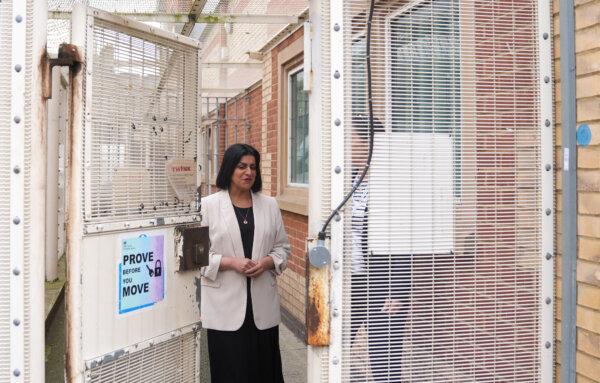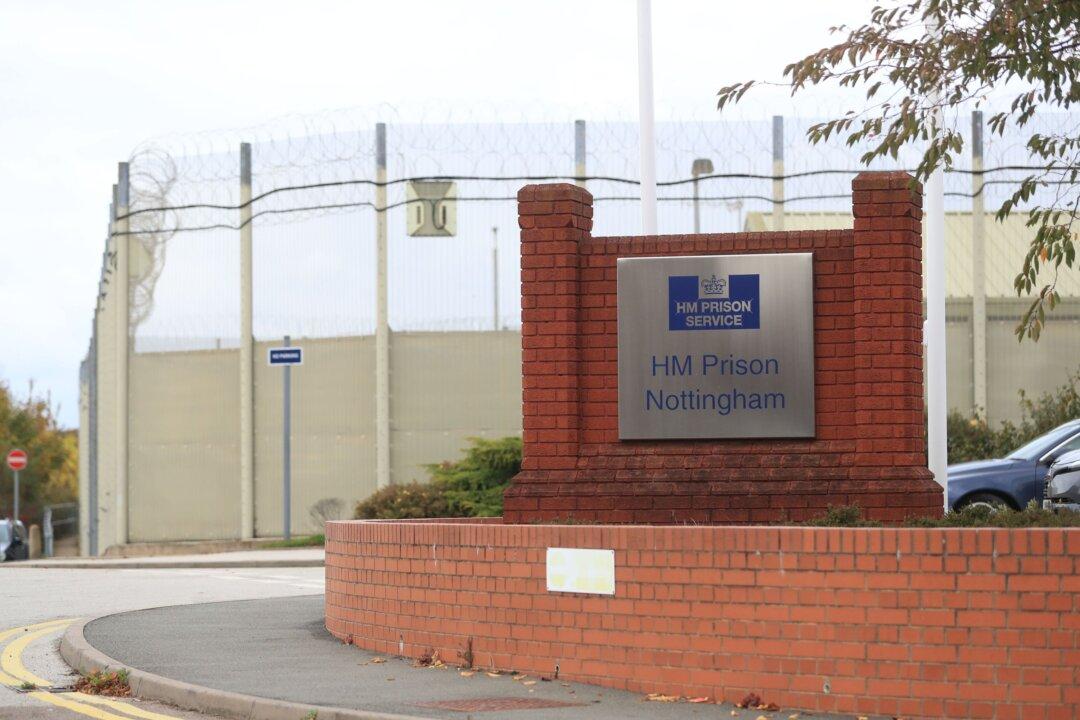Criminals being released early in a bid to cut prison overcrowding are frequently recalled to jail after reoffending, according to a report by the prison’s inspectorate.
The early release scheme—known as End of Custody Supervised Licence (ECSL)—was brought in by the Conservative administration last year in a bid to ease prison overcrowding.
More than 10,000 prisoners were released in England and Wales up to 70 days early between October 2023 and June this year under the emergency plan, according to Ministry of Justice (MoJ) figures published last month.
The scheme has changed several times, with prisoners initially eligible to be freed 18 days before their conditional release date before this was increased to 35 days in March this year, and then to 70 days in May.
Quarter Classed as Homeless
Chief inspector of prisons, Charlie Taylor, said a quarter of prisoners freed from HMP Nottingham under the previous government’s early release scheme were homeless when they left the category B male facility, resulting in “inevitable recalls.”“The prison was operating under considerable strain with constant pressure to accommodate new arrivals, move sentenced prisoners on and operate the early release scheme (ECSL) which was now on its 18th version since it had been introduced at the end of 2023.
“A quarter of prisoners released on this scheme (ECSL) were homeless and although data was not clear, it resulted in inevitable recalls,” the report said.

‘Enormous Churn’
Inspectors described an “enormous churn of prisoners” at the jail which would typically see more than 180 inmates released each month. At the time of the unannounced inspection in May, 924 prisoners were being held there.The early release scheme was “putting considerable pressure” on prison bosses and the “understaffed offender management unit,“ the report found, by undermining ”the preparation of effective, practical and safe release planning work, in spite of the prison and community probation teams’ determined efforts.”
The report added that the scheme often resulted in “last-minute flurries of activity, only to be compromised further by updated policy changes which came into effect during the inspection.”
Taylor branded the number of inmates released early when they were homeless as “astonishing,” but said it was uncertain how many or what percentage of prisoners had been recalled.
Inspectors also said they were “disappointed” that arrangements put in place to protect the public were “still not good enough, with not enough focus on riskier prisoners coming up to release,” despite this being raised as a “priority concern” in a previous inspection.
‘Short-Term Solution’
The largest union representing probation officers has said the early release scheme is only a “short-term solution” to the problem of prison overcrowding, with a further 2,000 prisoners due for early release in September.The Lord Chancellor and Justice Secretary Shabana Mahmood said in July she was advised that the emergency early release measure was necessary to avoid running out of spaces within weeks, with fewer than 250 men’s prison spaces out of an 85,000 capacity at one point this year.
Officials told ministers that the measure would buy the MoJ 18 months for more prison places to be created and a wider review of sentencing undertaken.
A Ministry of Justice spokesperson said in a statement: “Prisons are in crisis, placing significant pressure on the whole justice system and those working in it.
“That’s why the new Lord Chancellor announced in July that she was scrapping the old early release scheme and replacing it with a system which gives probation staff more time to prepare for a prisoner’s release including providing them with the vital services they need as they leave the prison gates.”







